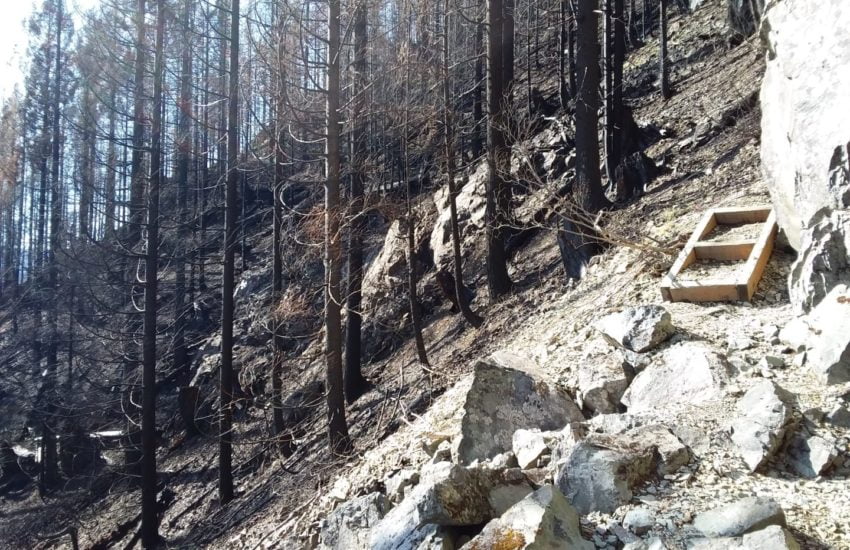
Richmond, VA, November 6, 2019 – Jane Corson-Lassiter has made a career of forging coalitions for natural resource management. Now, those same skills have garnered her recognition from the Virginia Chapter of the Soil and Water Conservation Society.
The group recently named Lassiter as its Conservationist of the Year for her outstanding commitment to pollinator habitat establishment and maintenance on the Eastern Shore of Virginia. As the district conservationist for USDA’s Natural Resources Conservation Service Accomac office, Jane works on a peninsula that supports a diverse ecosystem for butterflies, songbirds, shorebirds and waterfowl.
Jane was a driving force in establishing a pollinator demonstration site at the Eastern Shore Agricultural Research and Extension Center and an integral player in its maintenance and use as a teaching facility for partners and landowners. Other partners in the effort include the Eastern Shore Soil and Water Conservation District, Virginia Cooperative Extension and Virginia Tech.
“Our current work with the new Black Duck Initiative has brought several participants in the door for projects that provide habitat for ducks and pollinators, too,” says Lassiter. “We are excited to be working on a range of habitat establishment activities along with multiple best management practices on the area’s working farms.”

Lassiter holds a bachelor’s degree in biology from Brandeis University and a master’s in landscape architecture from the University of Virginia (UVA). Though she received her degrees before environmental science programs were widely available, her studies and career choices have always followed that path. Lassiter has more than 25 years’ experience promoting environmental stewardship, including work with the Eastern Shore of Virginia Soil and Water Conservation District and the U.S. Army Corps of Engineers in the Upper Ohio River Valley, Florida and Puerto Rico.
In 2009, she began working with NRCS as the coordinator/technical advisor for the Eastern Shore Resource Conservation and Development Council (RC&D), a small nonprofit that builds consensus and solutions for local natural resource concerns. Using grant funding from the National Fish and Wildlife Foundation, the RC&D partnered with the Chesapeake Bay Foundation to initiate the Onancock Watershed Restoration Project.
A community-wide approach to addressing local water quality concerns. Under that program, she helped make variable rate N-application technology available to area farmers, installed native plant community gardens, retrofitted urban parking lots with green bio-retention and planted riparian buffers.
Lassiter’s work with RC&D gave her a broad understanding of common resource concerns in other states and regions and led to a new multi-year project focusing on nutrient management in poultry production across the Chesapeake Bay watershed. Her team deployed technology demonstrations in Virginia, West Virginia and Pennsylvania to showcase systems designed to capture energy and nutrients from the manure/litter at poultry farms as an alternative to land application.
The career conservationist just began her sixth year serving farmers and landowners in two of the largest grain-producing counties in the Commonwealth. The area is also home to significant aquaculture, poultry and vegetable (tomato and potato) production. Her current work in the Accomac Field Office provides an opportunity for the Eastern Shore native to work closer to home.
Lassiter says she still finds natural resource conservation to be challenging and rewarding. She is also proud to pass on that environmental legacy to the next generation through her two children, Daniel and Emily.
Daniel received his degree in civil engineering from UVA and works on stream and wetland restoration for a Charlottesville-based company.
Emily has a doctorate in Biological Systems Engineering from Virginia Tech and is a research scientist for the BSE program on water resource concerns in agriculture.

